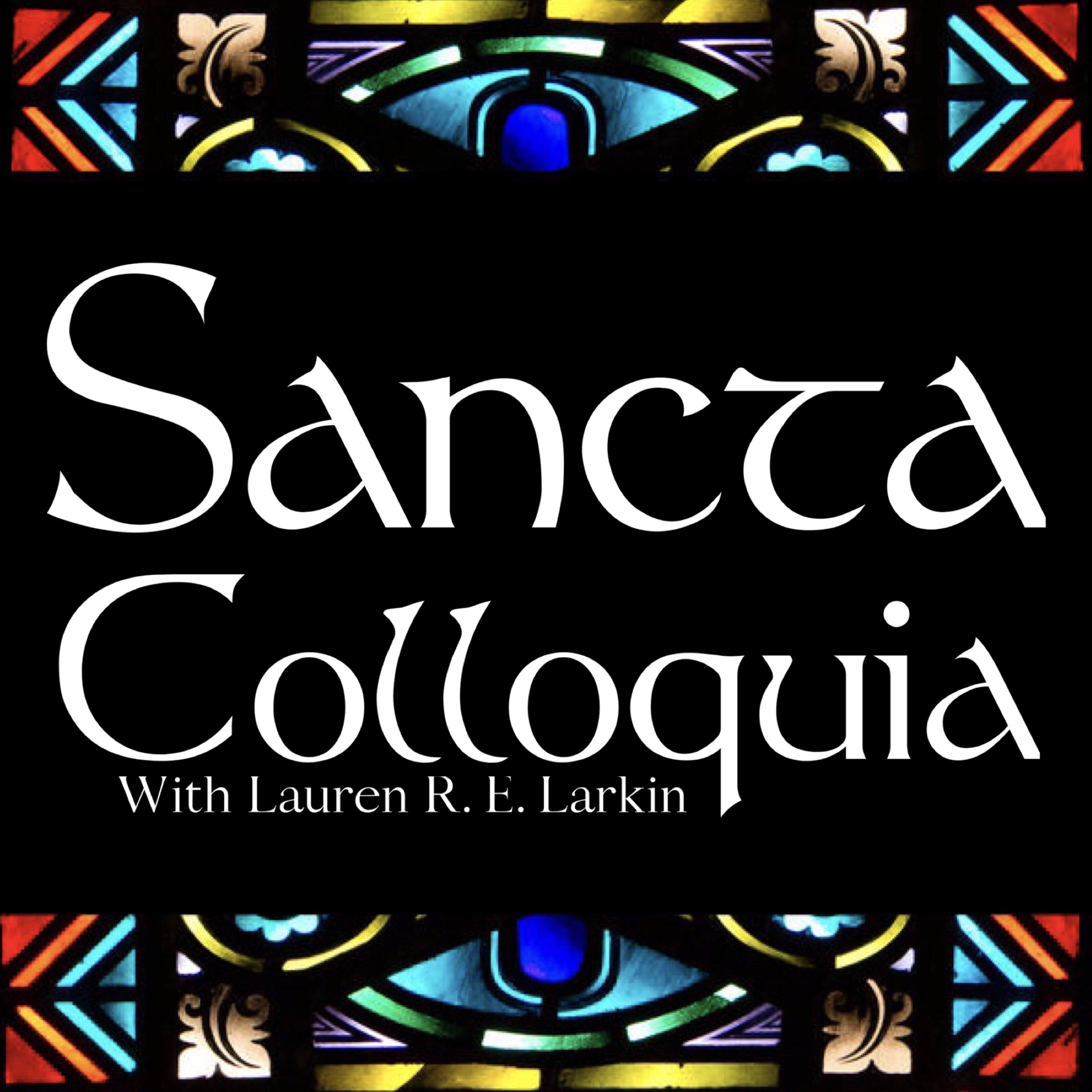Episodes
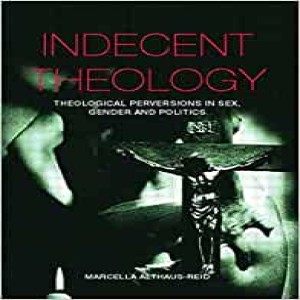
Monday Jan 11, 2021
Sex and Revolution II: Eros, Theology, and Imagination
Monday Jan 11, 2021
Monday Jan 11, 2021
Sancta Colloquia Episode 307 ft. Mason Mennenga
In this episode Mason Mennenga (@masonmennenga) joins me and we talk about the need for a new theology of sex. As I mention in my introductory thoughts, there’s a need to reevaluate the current and negatively pervasive theology of sex. It’s notable and not farfetched to say that our conceptions of sex and marriage coming in from both media and the church are inherently flawed and warped by historic misconceptions and fear of eros. In simpler words: there’s a rampant fear of desire that is woven through the Church’s doctrine of sex and in the culture/media. Both church and culture are bound in the extremes. We need to take seriously that as whole human beings we are wholly spiritual and wholly material and do not divide well. What we think about capital and production will impact our intimacy will impact our spirituality will impact our existence. The sad thing is that, as Mason said, we don’t reimagine constructs but just try to fit new things into old paradigms. Mason makes a really good point: we must go beyond merely speaking of revising or recreating a sex-ethic, we need an actual theology of sex that undergirds this new sex-ethic. One of the ways in which we can go about doing such a necessary revision is to actually…get ready for this…think of Jesus as a sexual being. According to Mason, in making space for thinking of the sexuality of Jesus’s context and Jesus as a sexual being, we allow ourselves or open ourselves to being confronted. Referencing Marcella Althaus Reed, Mason drives home the need for us to be confronted, interrogated and provoked by radical images that draw theology and sex in tighter alignment. Mason also brings up the need for revisiting liturgy…we both agreed, liturgy has plenty of erotic imagery embedded in it. The church may stress (too much, in my opinion) the agapic love of God, but both the scripture and our liturgies scream erotic love. So, why not begin with re-understanding eros and going back into a theology of eros, and, wedded to this need is this one: letting the voices of the oppressed speak and determine for themselves what sex is and what sex is for. It’s time for a regime change. It’s an excellent episode, if I don’t say so myself.

Monday Dec 14, 2020
Sex and Revolution I: Intimate Embodied Dance
Monday Dec 14, 2020
Monday Dec 14, 2020
Sancta Colloquia Episode 306 ft. Nicole Perry
In this episode, I had a very interesting and engaging conversation with Nicole Perry (@danceNdrama1) about intimacy, vulnerability, body, and relationship. It feels like we touched on all the aspects of what it means to be intimate with another person. Intimacy is such an interesting thing and something that humans being crave. Intimacy and the desire for intimacy is very natural. Yet, it seems that in one form or another external institutions (the Church, culture, media, etc.) love to dictate to us what this intimacy should look like. The problem becomes that in the pendulum swing from the Church to media sexual penetration is the primary focus. But what Nicole demonstrates throughout this dialogue is that intimacy is what *we* make of it. Nicole, an intimacy director/choreographer, deals with intimacy on the stage in dance and performance. There are ways, according to Nicole, to perform intimately that isn’t just playing to the normal trappings of “sex-sells.” In other words, you can express intimate moments on the stage in ways that do not employ actual kissing and actual acts of sex. Part of the power of a well-performed intimate scene on the stage is built around the idea of alterity: “…your body is your body, [your] boundaries are your boundaries…” This ability to say no and to be present in the no means that you can then be present in the yes, as Nicole says, “Yes only means yes if you can say no.” Now, this isn’t just about acting, and Nicole makes that really clear. One of the highlights of this discussion is that obtaining substance of self on the stage with and among others translates into real life presence. This means we can now talk about consent if there is an ability to say no and be present, we can now talk about intimacy in boundaries (this relationship exists here and has *this* intimacy) without having to devolve into penetration as the only means by which to express this intimacy. In fact, we could argue that the church and media destroy the concept of intimacy and thus sex by making sex the ultimate and glorified cow of intimacy. In this way, the person is never allowed to cultivate confidence in her intimate-talk and intimate-actions and thus falls into the trap that a sort of desire, like, love, and attachment must become sexual. It was such a pleasure to speak with Nicole and hear how much her life on the stage causes her to be a substantial person in real life. I hope you enjoy the conversation as much as I did.
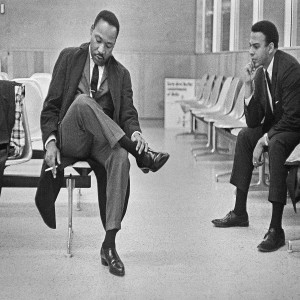
Sunday Nov 08, 2020
Creative Rage and the "Beloved Community"
Sunday Nov 08, 2020
Sunday Nov 08, 2020
Sancta Colloquia episode 305 ft. David Justice
In this episode I had the privilege of sitting with my friend from my dissertation writing group: David Justice (@DavidtheJust). David explained to me the thrust of his research: MLK Jr, the concept of “Beloved Community” and the constructive and creative power of rage. While we in the west tend to downplay and even vilify emotions, David demonstrates that King allows room for emotions, even the ones we’re terrified of…specifically rage. Yet King, speaking of “Ghetto Rage” argues that this rage is the rage of being beyond sick and tired of your dignity being tossed out and your humanity dragged through mud and denied. It’s here at this intersection of vibrant personhood where rage burgeons and forces the body into action—creative action. It’s not the rage of which keeps nothingness at bay, rather it’s the rage that penetrates and pierces nothingness with somethingness, or, referring to what David explains leaning on King, “sombodiedness”. David explains that this creative rage—which works in tandem with love and never devoid of it for King—seeks to establish the beloved community because of the establishment of everyone’s dignity and that individualism lending to autonomy are rid. This rage pushes back against the status quo and those who willingly (complicitly and captively) accept, uphold, and defend the status quo. In this “pushing back” the oppressor suffers; King is just fine with that. This suffering of the oppressor is the manifestation and identity with those who suffer. Truth be told, though, and David explains that King is aware of this aspect: those who oppress are already suffering in the system of oppression. Thus, this felt suffering isn’t new, it’s just bubbled up to the surface where the oppressor can acknowledge it. The conversation with David is timely as we sit in the aftermath of an election that exposed white America’s true colors: anti-black.
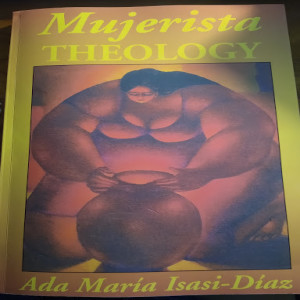
Thursday Oct 15, 2020
Sacred Seminary Symposium
Thursday Oct 15, 2020
Thursday Oct 15, 2020
Episode 2: Ch. 1 "A Hispanic Garden in a Foreign Land"
In the previous episode of our special project, Sacred Seminary Symposium, the host of Seminary for the Rest of Us (@seminaryshow), Sabrina Reyes-Peters (@_sdrp), and I dove into the short yet significant introduction of Mujerista Theology: A Theology for the Twenty-First Century by Ada Maria Isasi-Diaz. Sabrina noted in the show notes for this first episode, "There’s a lot to dig into, including privilege in theology, liberation, the kind of fruit theology produces..." And those themes continue in this second episode as we narrow in on chapter one: "A Hispanic Garden in a Foreign Land". We spent this segment addressing specifically the problem of white feminism, specifically white American feminism, the normativity of white cis-het patriarchal theology as a the plumb line to measure "other" theology (read: theology by non-male, non-white, non-hetero theologians), and the necessity to affirm the work of our sisters who have gone before us in this fight while building for future generations.

Saturday Oct 03, 2020
State Violence, Judith Shklar, and Dietrich Bonhoeffer
Saturday Oct 03, 2020
Saturday Oct 03, 2020
Sancta Colloquia Episode 304 ft. Kyle Trowbridge
In this episode Kyle Trowbridge (@kyletrow) joined me to talk about state violence, Judith Shklar, and Bonhoeffer. The question on Kyle’s mind, which is the background to our conversation, is: “How do we think about political and state violence today?” There is a need for a Church response to the state. Referring to Shklar’s work, Kyle highlights that in regard to current state violence and political violence, the liberal political orders should focus on state encroachment and the psychological and physical impact on groups that are being encroached upon (also the different spheres of encroachment: domestic and economic to name a few). If or when the Church opts out response to state and political violence in the name of the gospel, it forfeits its realm as the Church, because the Church should hold its ground and confront the problems being created by the state for the people—because it is the Church that is oriented toward the people and oriented toward God, both being the fullness of the commandment of God. We can see this as the ability of the Church and her members to see through the normalization of violence and oppression present in our politics, economics, and our social posture. Also, to refer to Bonhoeffer’s Ethics, there is a need to address the penultimate needs of the people of society before and in order to address the ultimate need: the need of the gospel. Thus, the church can’t opt out of activity on behalf of the oppressed and marginalized in the name of the gospel, because if someone is barely surviving under the oppression of local oppressive rule and authority, then giving them the gospel at the expense of a means to survive is rubbing salt in wounds and essentially telling them their bodies don’t matter. (Sadly, the church is all too familiar with this type of abuse.) The burden is not merely just on the Church as an abstract entity that we can blame when all things go wrong, but also on those who sit in her pews. We as individuals, as Christians, as those who have heard the good word of Christ Crucified also bear the burden to address penultimate needs. Kyle highlights a few tangible ways for our activity in the world: we can organize, we can works for social and common good, we can vote, we can have an eye and a desire to engage with the process of correcting problems (and this means going beyond merely pointing out problems and engaging with solving the problems). Kyle points out the need for this work even if we don’t see the outcome of our labors…calling into light: if we only work for reward, are we are truly human society? I think that’s something to think about. Come listen to Kyle and join not only the conversation, but also the fight for our humanity.
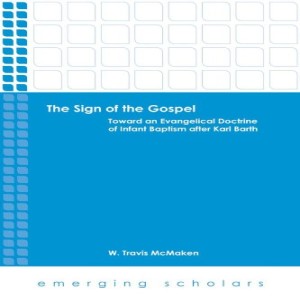
Wednesday Sep 16, 2020
"Sign of the Gospel" Part 2
Wednesday Sep 16, 2020
Wednesday Sep 16, 2020
Here is the second half of the interview with Dr. W. Travis McMaken about his book "The Sign of the Gospel" and the topic of Baptism.
Episode 1 is here: https://laurenrelarkin.podbean.com/e/sign-of-the-gospel-part-1/

Sunday Sep 06, 2020
"Sign of the Gospel" Part 1
Sunday Sep 06, 2020
Sunday Sep 06, 2020
Sancta Colloquia Episode 303 ft. W. Travis McMaken
If you’ve ever wanted to know all things Baptism, I’ve got you covered. In this episode (and the next one), Dr. W. Travis McMaken joins me to talk about his book The Sign of the Gospel: Toward an Evangelical Doctrine of Infant Baptism after Karl Barth. I have to be honest and point out up front that this episode is (in my opinion) a bit different than my other episodes. It’s less casual and more formal due to the structure and flow of the questions I asked Dr. McMaken ahead of time. So, there’s a strong pedagogical feel to the episode. McMaken does the lion’s share of walking through the history of Baptism, from the early church to the Reformation and Baptism, and, finally, landing squarely in the theology one of the greats of the early to mid 20th century: Karl Barth. Thanks to McMaken’s depth of knowledge and experience as a professor, this episode is, in my opinion, an excellent exposure to sacraments, sacramental theology, church history, and the implications our church life has for our political life. To be honest, sometimes understanding some of the traditions of Christianity can help you to revisit and review them in new light: baptism is exceptionally political. Those who say otherwise are pulling the wool over your eyes, keeping you from good activity on behalf of the oppressed and marginalized (maybe even from good work on behalf of yourself).
So, if you thought that Baptism is just that thing that happens at church where you watch and then go eat cake, you’d be a wee bit right but way more wrong. It’s the event of Baptism especially where Jesus Christ is preached, that moves not only the baptizand but also those who stand around the baptismal font (family, God-parents, fellow parishioners, etc) into their active role in the world. Baptism isn’t just about a few sprinkles of water (nor even about whether or not that should be “full immersion”), but about activating the person through the event of faith in the encounter with God to love their neighbor as themselves in the world. Baptism transcends the four walls of the church and the reception hall (housing that cake). The gather community becomes the sent community; the church body gathered to hear Christ preached, who witness baptism (over and over again, because it’s not a singular historic event but one that repeats in the encounter with God in the event of faith) becomes the body of Christ in the world, thus, participating in the breakdown between the distinction between church and world. The work of the baptized, of those who have encountered God in the event of faith, become those whose actions, in the proclamation of Christ, become as divine action, especially as it pertains to radical acts of loving others materially, economically, politically, socially, with justice, peace, humility, and grace. There’s so much packed in this interview, that I’m breaking it into two parts—I really did not want to cut too much; when it comes to pedagogy, Dr. McMaken is excellent.
Intrigued? You should be.
(The episode will air in two parts. The second part will go live in two weeks.)
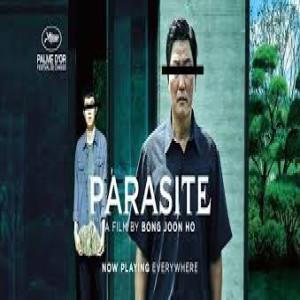
Saturday Aug 01, 2020
Parasitic Parasites
Saturday Aug 01, 2020
Saturday Aug 01, 2020
Sancta Colloquia Episode 302 ft. Blake Collier
In this episode of Sancta Colloquia, I sat down with horror movie guru, Blake Collier (@LostinOsmosis). And our focus was: Parasite. In a world of eat or be eaten, are humans autonomous like we, Westerners, like to think humans are? The movie Parasite seems to suggest that it’s symbiotic systems of feeding upon one another: the rich off of the poor, the poor off of the rich. Blake makes the point that the main point of the movie seems to be that in this world we are all parasitic in some way--relationally, economically, politically. It seems there’s an element of human nature that demands parasitic behavior. Blake and I spent a lot of time weaving and wending through the movie, but we were really talking about socio-economic class and the failure of the American Dream and the notion of Capitalism as a system that works. It doesn’t work; it isn’t working; it won’t work. One of the interesting things about modern American objectivist infused capitalism is this notion that it’s great to be on-top, to be the lead dog. But is it? (What is the top? And, can anyone make it to the top? Will Dahye fulfill his dream to parasite his way into the realm of the elite to free his father?) It seems this movie has another thing to say to such a notion: think again. In a system that is built on competition and productivity with emphasis on capital, you get a system where no one is free, no one is living, we are all surviving. Well, as Blake explains, the rich are building legacy to keep wealth captured, the middle class is saving, and the poor are sharing. While the rich have it easier than the poor in some ways (it’s nice to be able to pay bills), neither has that “life” and “freedom” because both are illusions because all people are consumed into the system. And humanity descends into the depths of the flood of demand and greed and suffering where everyone loses their livelihood—because, as Blake explains, success is about moving up in socio-economic brackets (the definition of “rat race.”) While it seems our conversation may have been on the “downer” side of things, there’s hope. Hope lies in being more human and less parasite. According to Blake, “Parasitism ends when we become more human, when we share what we have with one another.”
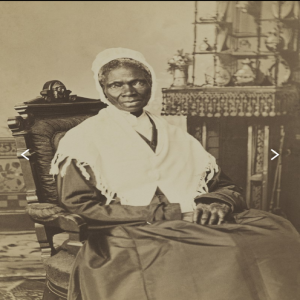
Tuesday Jul 07, 2020
Sojourner Truth, Embodiedness, and the Erotic
Tuesday Jul 07, 2020
Tuesday Jul 07, 2020
Sancta Colloquia Episode 301 ft. The Rev. Dr. Kate Hanch
In this episode of Sancta Colloquia, my first ever guest, Kate Hanch (@katehanch), allowed me to talk with her (again) to celebrate the 3rd season of Sancta Colloquia. What a crazy and wild ride it’s been since we first talked. So much has gone on, so many conversations had, so much has changed due to growth. This time Kate discussed Sojourner Truth and her influences and deification of the erotic, specifically intersectionality and black feminism. Kate explains who Sojourner Truth was and her vital impact in preaching and embodiedness. Kate shares about Truth’s own embodiedness when she walks away from her slave master with her son; she doesn’t run, Kate stresses, she walks. And there is everything embodied and present in walking, specifically walking away. Kate emphasizes that there is humility in the lives of women that is not humiliation or shame but more about vulnerability and openness to God and to others. In this way, bodies can become as God (deification). We have bodies and we experience the world and God in our bodies; we experience others through our bodies. Kate explains that sanctification, through the lens of Sojourner Truth’s life and preaching, is an ongoing process and a coming together with the erotic. Kate pushes the erotic energy of connection of this mystical union toward God and toward others. In a world that is (too?) obsessed with the erotic only as sexual gratification of taking from an other, Kate, with Truth, allows for a broader and more robust definition which see the erotic as self-embodiment and not just sexual gratification. Self-embodiment goes hand in hand with self-awareness (being in your body and aware of it, the intentionality of being) and this self-awareness is, for Kate, part of the erotic. As the conversation moves, Kate exhorts the listener toward waking to the image of God within. That this awakeness is about being powered (from the self) and not empowered, which implies that the power is coming from without--your power is coming from within. And you are not merely given a body (embodiedness) but you are bodied: you are a flesh and blood creature experience the divine sensations of the body and this fuels your substantial presence in the world (living into ourselves and enjoying ourselves with our bodies--minds connected to a body--erotic connecting to coming closer to God in sanctification). Sojourner Truth reminds us that we live and love (agape, philos, eros) in our bodies, we receive and take into our bodies, we give from our bodies…we self-give with humility and interdependence.
Intrigued? You should be.
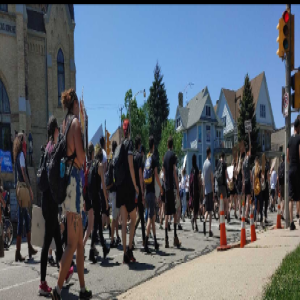
Thursday Jun 04, 2020
Liberating the Captives
Thursday Jun 04, 2020
Thursday Jun 04, 2020
In this episode of Sancta Colloquia @SanctaColloquia), I had the opportunity to sit with my friend and colleague, Robert Monson (@robertjmonson). Robert and I discussed one overarching theme--The God who liberates black people--in two points: the necessity of practical theology and the need to redefine the term “Theologian.” At first, one may think that these ideas are single concepts disconnected from each other, but, after talking with Robert, it is easy to see how these two ideas are twin ideas. Monson explains that “Practical Theology” is, simply put, the academic discipline of theology brought to the ground level. In other words, Practical Theology answer the question: “How does this [academic] theology inform our orthopraxy?” Monson explains that concepts of God are lofty, and when the person listens to academic papers about God (often described and defined (wrongly) through and with whiteness) the question is: “Who cares?” So, Practical Theology bridges the gap between knowledge and why we care. Practical theology breaks into the very echo chamber that renders us lethargic and useless and attempts to bridge the gap between heady, academic, ivory-tower language and every day real people. Along side this is the term “theologian”. What or who is a theologian? Standard ways of defining such a concept or “person” cause us to imagine theologians as old, cis-het white, men (almost like our go to images for God). Monson informs us, “What we define as ‘theologian’ is harming how we see both theology and God. ‘Did God only speak through white men post Martin Luther?’” He makes an important and rather startling point that “Even CS Lewis gets a pass” as a theologian (an untrained cis-het white man). However anyone falling outside of the "rule" (women, BIPOC, LGBTQIA+) has to verify and demonstrate and be approved by the ruling class to claim the name for themselves. Even when the minority goes through the hoops to become a “theologian” they are then called a heretic because they stray and push back on “theology proper.” As mentioned in the introduction to the show, even if we do meet the “standard” we won’t because, to quote Dr. Callahan, “we weren’t meant to be there in the first place.” Case and point: Dr. James Cone. Robert informs us that Cone’s theology is not that radical, he’s actually looking at the text and seeing practical things: God liberates people and didn’t just give them an abstract future hope that maybe one day they'll be liberated...in Heaven. By arguing for “black theology” and for the equality and beauty and rights of black people, Cone gets charged with heresy because he’s not towing the white-theology line of the ruling authority. Even though new definitions and change are scary, Monson says, we need more diversity at the “theologian” table…maybe that table should look more like our communion table…
*Photo credit: Nate Sparks

